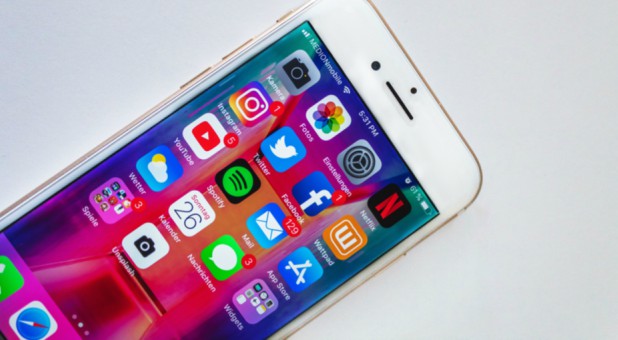Could Parents Be Responsible for Social Media’s Harmful Effects on Kids?
Mental health experts and Christian parents are sounding the alarm about the negative impact social media is having on our younger generation. Teenagers are experiencing a mental health crisis that is likely linked to time spent on sites like TikTok, YouTube, Instagram and more.
The CDC reports more than 44% of U.S. high school students surveyed reported feeling hopeless almost every day for at least two weeks in a row. More than half of teenage girls reported feeling persistently sad, a 10-year high, according to government data. At the same time, teens are spending increasing amounts of time of social media, with nearly half reporting being “almost constantly” online, according to Pew Research Center.
Daniel Amen, M.D., adult and child psychiatrist, told CBN News while the statistics are frightening, they are not surprising, considering the very nature of social media.
“It was developed by people in Silicon Valley who understand addiction, and they, (the sites), were created to be addictive,” he said. Pointing to the efforts of social media company executives, Amen said, “They want more brain time because more brain time means more money.”
This desire of social media companies to want consumers to spend more brain time on their platforms happens even though they know, in some cases, that can be damaging, according to former Facebook executive-turned-whistleblower Frances Haugen who testified before a Senate committee.
“Facebook knows that they are leading young users to anorexia,” she said, citing the company’s own research that reveals their platforms can erode many aspects of a teenager’s well-being. “When Facebook is asked questions directly as important as, ‘How do you impact the health and safety of our children?’ They choose to mislead and misdirect.”
Cyber-Bullying, Doomscrolling, Body Issues
Mental health experts blame social media overuse for many of the psychological challenges kids face today. Licensed psychologist Carolyn Rubenstein, PhD, told CBN News she counsels young people who are suffering the ill effects of this technology, as are many of her peers.
“It’s definitely becoming a big, big issue that mental health clinicians are seeing,” she said.
Dr. Rubenstein said too many teens feel bad about themselves compared to other people they see on social media, people who seem to be a lot happier and better looking, when in reality, they are neither.
“I think body image is one of the major places where we’re starting to see some real impact,” she said. “Especially with all the filtering that has been happening, and all the apps you can now use to make yourself look like a completely different person.”
Cyber-bullying is another major source of teen angst.
“The cancel culture of, if you do something that someone feels is skewed or incorrect, you are pretty much bullied and ostracized,” explained Dr. Rubenstein.
She said another cause for concern is the all-too-common activity known as “doomscrolling,” which is compulsively seeking-out disturbing content that deepens a person’s already existing feelings of fear, depression, and hopelessness.
“You’re on your phone, you’re scrolling, you feel awful, and you’re looking for more that kind of confirms that feeling on social media,” Dr. Rubenstein said. “It’s almost automatic. You don’t even realize you’re doing it. And it leaves you in a pretty icky, doom-like mental state where nothing feels good. And it’s pretty scary.” {eoa}
For the rest of this article, visit our content partners at CBN News.
Reprinted with permission from cbn.com. Copyright © 2023 The Christian Broadcasting Network Inc. All rights reserved.







































